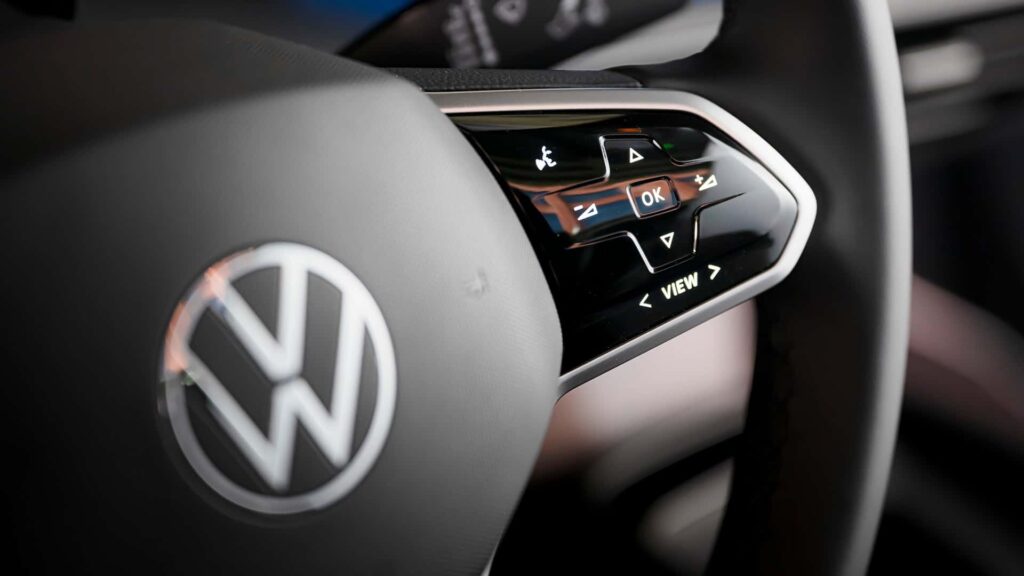Volkswagen is facing a new lawsuit over its use of capacitive touch controls, specifically targeting the touch areas on the steering wheel of models like the ID.4 and ID.Buzz. The lawsuit alleges that these touch-sensitive buttons are too easy to activate, posing a safety hazard for drivers. This comes as no surprise, as many consumers have expressed dissatisfaction with the trend of making cars more like smartphones, with touchscreens and capacitive controls dominating the interior design.
One of the key issues raised in the lawsuit is the unintentional activation of features due to the sensitivity of the capacitive buttons. A simple brush of a finger over the control plane could lead to unintended consequences, similar to pocket-dialing someone on a smartphone. This has raised concerns about the potential for accidents and safety risks while driving.
In response to the lawsuit, Volkswagen has refrained from commenting on the ongoing litigation. However, it is worth noting that at least one VW executive has acknowledged that the use of capacitive controls was a mistake. Andreas Mindt, Volkswagen’s design boss, has pledged to bring back physical controls in future models after receiving feedback from customers about the challenges posed by touch-sensitive buttons.
The lawsuit also highlights incidents where accidental activation of features like adaptive cruise control led to sudden unintended acceleration and, in some cases, fatal crashes. It questions the effectiveness of Volkswagen’s IQ.Drive safety features, citing instances where emergency braking failed to activate, airbags didn’t deploy, and the brake pedal failed to disengage the ACC system.
Furthermore, complaints filed with the National Highway Traffic Safety Administration have raised concerns about the functionality of these features in real-world scenarios. Owners and reviewers have also expressed frustration with the capacitive buttons, with some resorting to replacing them with components from other models.
The lesson learned from this lawsuit is clear: cars are not smartphones, and automakers should prioritize the responsible and effective implementation of technology in vehicles. While tech features are important, they should not compromise safety or driver experience. Volkswagen’s decision to revert to physical controls underscores the significance of listening to customer feedback and prioritizing functionality over flashy gadgets.
In conclusion, the lawsuit against Volkswagen serves as a reminder that the automotive industry must strike a balance between innovation and safety. By learning from mistakes and prioritizing user experience, automakers can ensure that their vehicles meet the needs and expectations of consumers without compromising on safety and functionality.

